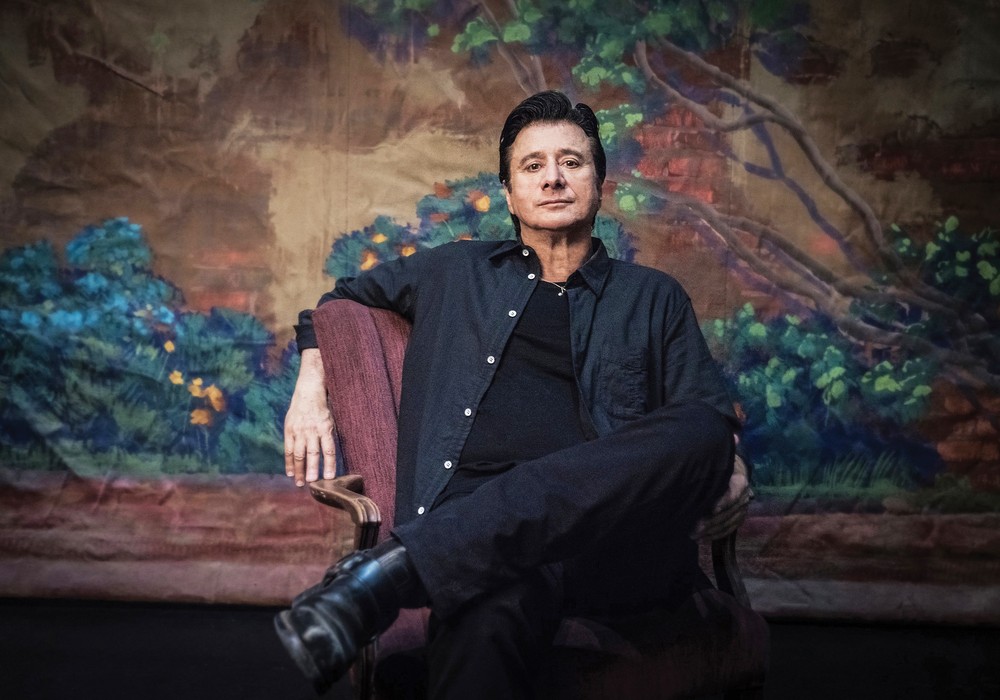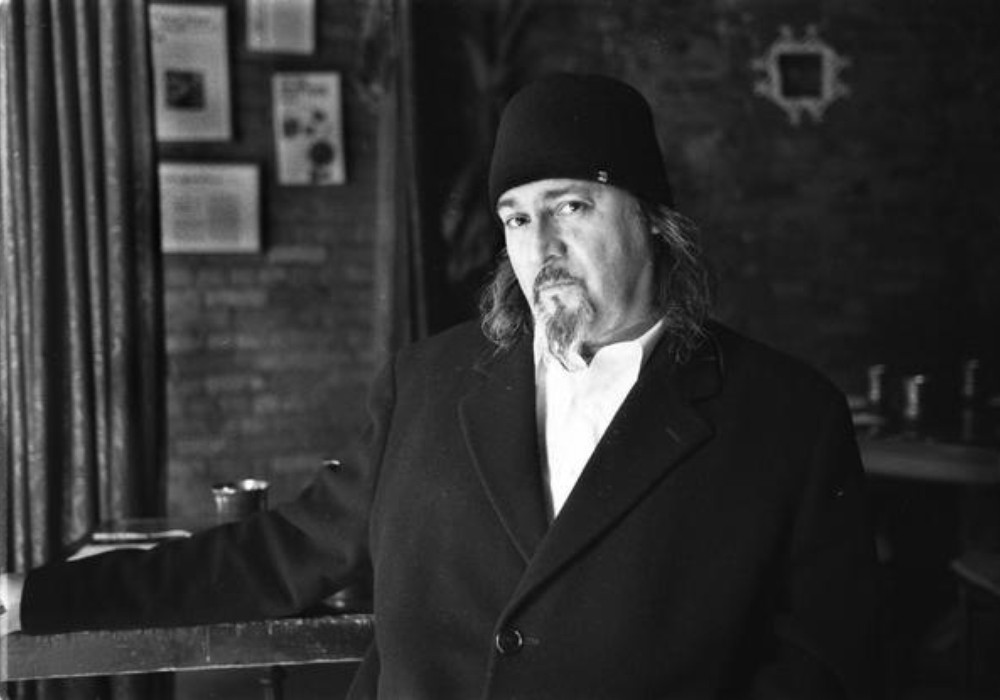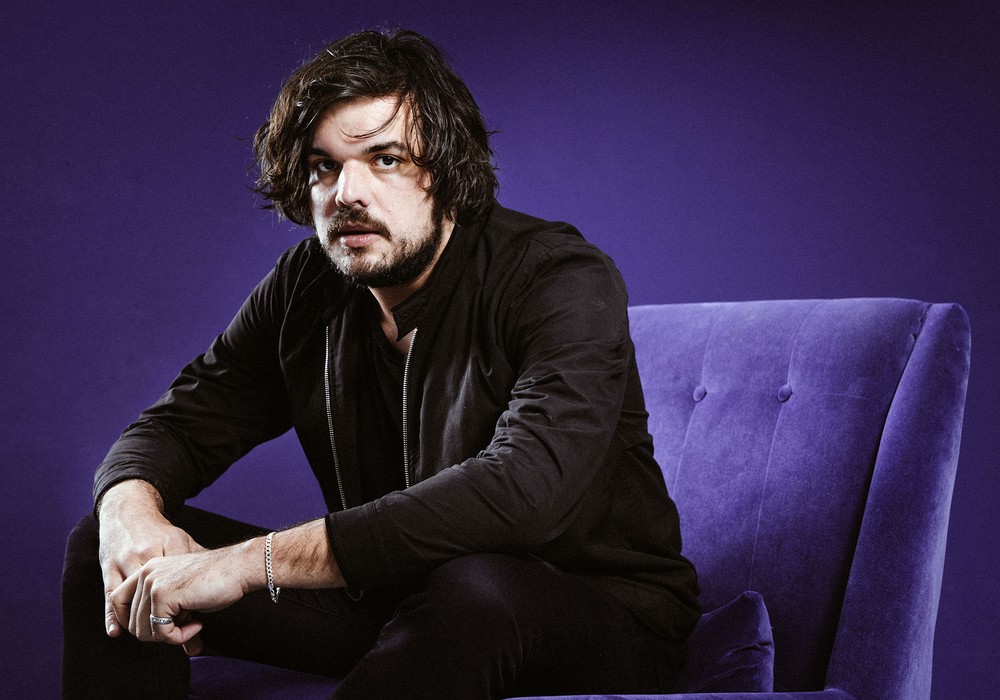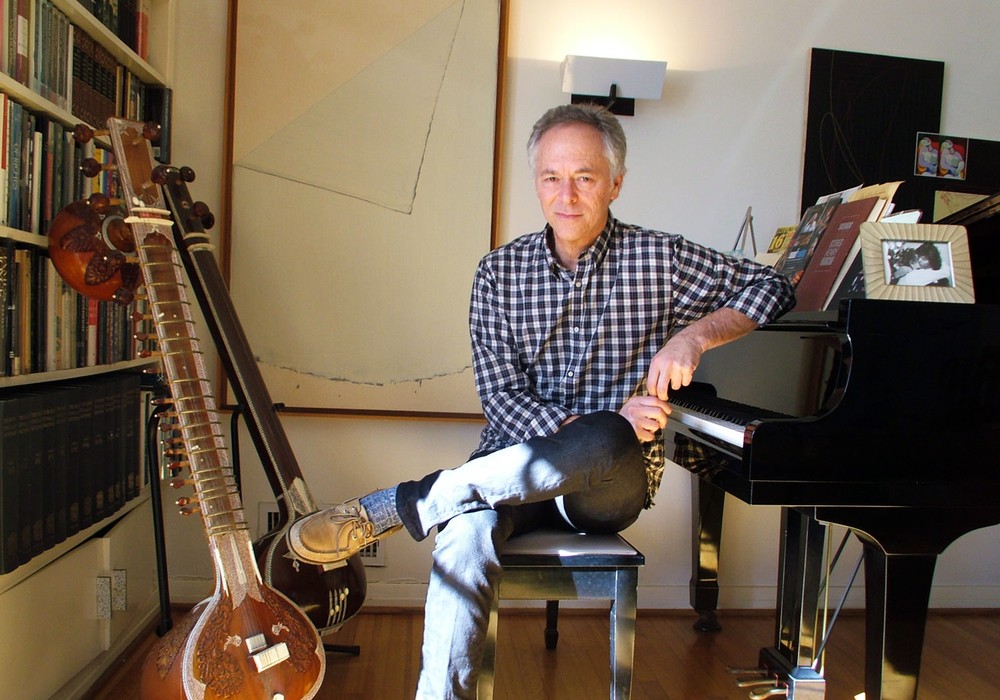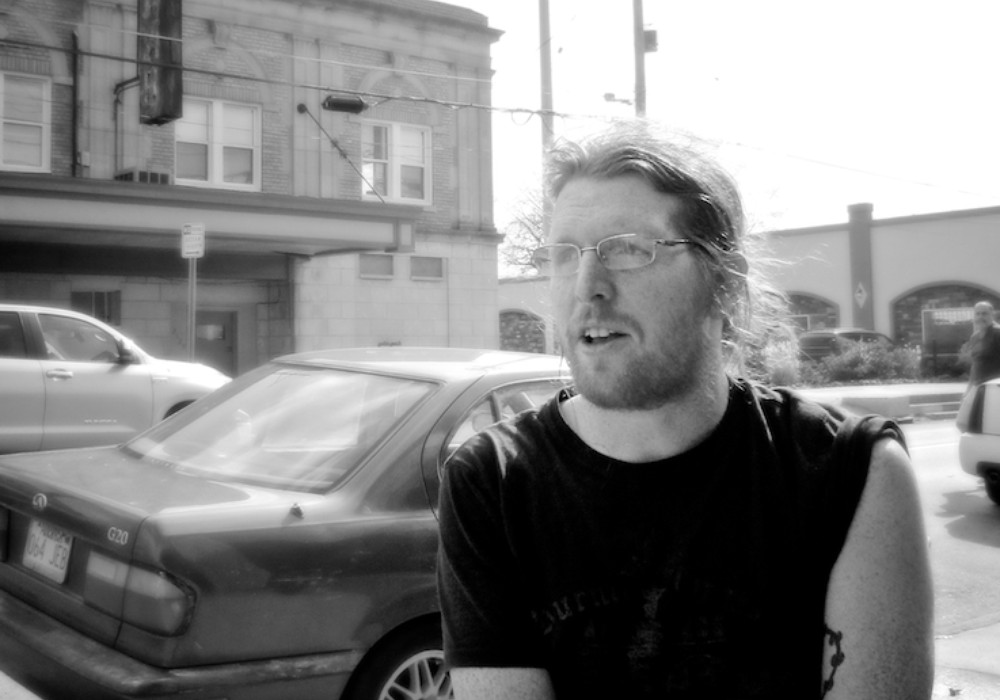We interviewed Tycho’s Scott Hansen after the release of his Epoch album for Tape Op #123. With the addition of vocalist Hannah Cottrell, also known as Saint Sinner, his new release, Weather, introduces a new chapter in Tycho’s music and gave online publisher Geoff Stanfield an opportunity to sit down with Scott in Seattle and have a song-by-song chat about the making of this fantastic record.
Before we get into the record, maybe we can just talk a little about the decision to have vocals on it? That’s probably been the big topic on this record everyone’s asking!
It was always my intention early on. Zero 7 and Cinematic Orchestra and Thievery and all those groups early-on, as I was just getting into music were kind of my reference points for chill-out. I knew that was the space I wanted to be in. I actually tried to make a vocal record in 2003 and 2004. I recorded a bunch of tracks with Jason Sewell in Sacramento. We had all these vocal tracks, and I wasn’t in the place as a producer where I knew what to even do with it, so I just started taking snippets. It became Past Is Prologue / Sunrise Projector, the same kind of album. I used those snippets throughout the records, but I always was like, "Okay, I’m going to focus and practice and get better at producing, and someday I’m going to do a real, true vocal record." The opportunity just kind of presented itself. This kind of felt like the moment too that Epoch felt, definitely the closing of a chapter. It felt like a good bookend to what Dive began. I just needed to do something completely different. This was like the moment, and that was kind of the concept.
A lot of those bands that you referenced had multiple singers, like Massive Attack, especially over the arc of their record careers. Why did you choose Hannah?
I tried working with some other vocalists, and I’m happy with the results. I’m sure it’ll come out in some form, but I was hoping to find somebody where I felt like it was a singular voice and I could build a record around it. I wanted this album to be a cohesive statement. I didn’t want it to feel like a collection of singles featuring "so-and-so." I think that can work in certain contexts, but I think Tycho is a really album-driven project, so I want each album to have a thesis statement and be cohesive. She just came over, and I randomly met her through a friend. We had never met before. She just came over to the house. We recorded like two tracks that day. I think it was “Skate” and “For How Long”. Immediately just the timbre and the texture folded in, and it was the kind of voice I really enjoy working with from an effects standpoint. It really lends itself well to being effected in interesting ways. You know, all the Tycho sounds end up as warm, mid-rangey sounds, which can be a problem when mixing to make a song feel present and cut through. The tonal range and space she works in kind of rises above it all, so I didn’t have to do as much paring down of the instrumentals. It all layered nicely.
Which came first? Were the songs written specifically with melodies in mind, or were they more traditional Tycho tracks that you then gave to her and said maybe there’s room for vocals, where you’re muting a featured or melodic instrument?
Yeah, it depends on the song. Most of the songs, there’s three categories. There’s “Easy”, and that was more what I wanted to be the jumping-off point. That’s like the older stuff where you’re using sampling and snippets, so that’s minimal. Then there’s all the other songs and then there’s “No Stress”. “No Stress” was the one song I wrote specifically for her after I met her. But like “Japan” and “Pink & Blue” and “For How Long”, those existed as instrumentals. They were the type of instrumentals where I write a lot of them and get into this production space. I think, "Oh man, this song’s cool. There’s something going on here, and there’s all these elements that I really like, but something about it isn’t standing on its own yet. It feels like something’s missing." There’s always been a lot of songs like that in the past. I just had to put them aside, like, "I don’t know where this goes." I slowly started to realize throughout Epoch that, "Man, these songs just need vocals." This time around when I was writing, instead of putting those aside, I focused on those ones and really was like, "Okay yeah, this part will go away here." I just sent her these demos that were definitely designed for vocals. Then when she came in and sang on them it was like, "Oh, this should definitely happen 'here' on that." We kind of focused more in on the vocal parts, and I obviously pulled some things back and did some give-and-take.
Let’s dig into the tracks on the record a little bit. I thought "Easy" was such a nice way to introduce vocals on the record. If you just needle dropped and didn’t know that this was a vocal record, it’s a nice way to introduce the texture. You hear the voice even though it’s not featured. You have her swirling around and effected, more a part of the fabric. I thought that was a really nice choice to open the record with, whether that was intentional or not.
It definitely was. That was the jumping-off point.
Maybe you could just talk a little bit about that track in particular.
Yeah, the lead sound in there is a Korg minilogue. That was kind of like the key synth in Epoch. You’ll notice on “Glider” and “Horizon”, mostly it’s “Glider” and I forgot the other one, but it has the same lead. I wanted it to be a song that felt like it connected to that record. There was this bridge, sonically, but yeah, if you notice, there’s no vocals and then like boom, there’s vocals. I wanted it to be this jumping-off point sonically, or stylistically, where it felt like it dovetailed with Epoch but then just went off into its own space. I felt like that was a really strong instrumental all along. I felt like it stood on its own. It made it through almost the whole process without vocals. Then I recorded her for “No Stress” which is one of the last ones recorded. Those are actually outtakes from those sessions. All those little snippets are pitched and just little manipulated snippets from “No Stress”. That actually ended up being the last song to get finished or the last song to have vocals on it.
How about “Pink & Blue”?
I feel like “Pink & Blue”, if you’re an old Tycho fan or you used to like some of the earlier stuff, especially like Dive, if you’re making a spectrum of Tycho songs, that probably lives on a far different end of the spectrum than something like “Adrift” or stuff like that. That was the goal. I created the soft landing with "Easy" to ease you into it, and then here’s like the most stylistically different song you’re going to find on the record or in the catalog. There’s this soft kind of 'ease you into it' and then boom, that just drops as the second track. I like where it sits on the record. It just kind of wakes you up. From a production standpoint, I feel like that was one of those songs where I had these amazing textures, but it didn’t have that like unifying thesis statement element. She really brought it together with those vocals that tied the whole thing together.
Are things fully-formed by the time you take them to the band?
It depends on the record. For Epoch and Awake, I worked really closely with Zac [Brown] on a lot of the songs early-on. Rory [O'Connor] played all the live drums on the album Awake. Basically, this time I wanted to get back to my roots as kind of like a sampling home studio guy. Obviously I had more than a computer and a sampler like the old days, but I just wanted to get back to that space of writing and following ideas, just a really kind of insulated process at the beginning. For this one, I went and recorded Rory before anything, before any of the songs even existed, at Decibel Studios. Robert Cheek recorded the drums. It’s the same place we recorded the second layer of drums for Awake. I took all those and made them into a loop library, just found the phrases that I liked. Here’s 8, 16, 4, whatever. Then I created a library and just pitched those around and made them fit to the songs as I was writing them or used them as a space for writing.
So he was just playing grooves? You’d just go in there and play?
It depends. He’d play to some old songs and other peoples’ songs, or he just played to whatever. I just wanted to catch as many time signatures and styles and tempos as I could and just build like a "Rory" library. I feel like I work best by working that way, by loops. That’s just how I came up, so it’s my methodology. But I think on other records I started that way and then we did a second layer of performance drums. This time it was cool, because I had the full performances and the loops, so I was able to take those and mesh those a little better at the end.
How about “Japan”?
“Japan” is cool. I don’t know music theory, so I’m always creating chords out of mono synths, like the Minimoog. I’ll play a note and then layer it and layer it. This time I was like, "I want to actually write with chords." That’s a little bit too methodical sometimes, and you can’t feel it out, so yeah, it was the first song I ever wrote with actual chords. I was trying to get back to that Awake space. I think that’s 83 BPM; that slow, disco, four on the floor. I had been in Hakone, Japan, and just got really inspired there and then came home and wrote that. Hannah had just had a friend who came back. It was like a weird, serendipitous thing. I sent that to her and she wrote the lyrics. I just called it, "Japan.wav" and sent it to her, and then she built that narrative around it. It was cool. When I first started working closely with Zac, he has such a pop sensibility to song structure. I just didn’t know anything about verses and choruses. I was obsessed with Boards of Canada. "Here’s random shit for seven minutes, and we’ll see what happens." So, he’s kind of the driving force behind Awake, how concise and structured it is. I kind of took all the lessons I learned from that and applied that in this sense. If I’m going to do vocals, I really wanted it to be like this is a vocal record and has structure. It’s like a pop record in a lot of ways. That’s something I’ve always wanted to do as a producer. That was kind of the goal with this. I took a lot of those lessons learned. Then I think the other cool thing is that the other stuff was so open-ended that it was impersonal in a way, impersonal to me, in a way that anybody can interpret it in their own way, which is beautiful. I think that’s the other compelling thing about it. I wanted to take one person’s experience with the music and highlight that. That’s what Hannah is. There’s something beautiful about that. It’s like channeling her personal experience with the music into the actual music. I wanted that to be a moment in my career to actually be able to do that and focus the message instead of keeping it so open-ended.
So some of the tracks don’t have any vocals like “Into the Woods”.
Yeah, classic Tycho vibes. With “Weather” and “Into the Woods”, I think that was me taking all the lessons learned and the styles that have evolved and developed since Dive and Past is Prologue, but reconnecting with who I was as a songwriter and what inspired me and the processes I was using and trying to meld those. I’ve always thought of it as the process is the product. I’m designing a process in an ergonomic system for human-machine interaction. I’m the test subject or whatever, but at the end of the day, I feel like you put anybody who’s willing to put the time in, basically. I think any electronic musician, after you do this long enough you just start to realize that’s the way it works. I don’t remember how some of those songs came into being, but I think I spend more time, my wife is always like, '"What the hell? You’re always rebuilding your studio!" I’ll be like, "Come look at this! I set this up differently." Sometimes I wonder if this is bad to obsess over this element, because I love technology, but I don’t want to think of myself as like a technologist or that I’m only concerned with the equipment. There is art and a spirituality to it that is a big part of my life; some fulfillment I get out of it on that level. There’s also a part of me who could design studios for a living and be pretty damn happy. There’s something really great about being the operator and the designer and architect of the system so you literally are learning the lessons firsthand. Then the next iteration, each time you’re making it more efficient or trying to find ways to keep it more open-ended or more inspiring so you don’t fall into these traps or ruts and are trying to open it up. Especially after 20 years; it’s kind of like you have to keep tricking yourself.
How about “Skate”? You mentioned that a little bit earlier.
The tradition seems to be to end every album with a sad guitar song. There’s “Elegy” and “Plains” and all that stuff. I always call them "sad cowboy songs," because they always sound like some sad cowboy guitar for some reason. This one, I wrote it and then I kind of got tired of that mode. They’re almost always the same song, and at some point they become very similar. It was like, "Oh, we could do this really nice ballad, this pretty thing." Luckily when I sent her demos that one resonated with her the most. That was the first song we recorded. I think I sent her eight songs maybe, and some were more developed than others. But she picked all the ones I was hoping she would pick. But you know, it’s tough as a producer or songwriter. You never know what is actually good, because you’re so close to it. "I think these are cool, but maybe this other one’s cool." I tried with her to send a nice group with a lot of dynamics, but she picked the ones I liked so it worked out.
Nice.
You always have some working set of stuff. Like, "Oh, I wrote a couple songs I’m excited about over the last few months." But not like, "Hey, I could see this becoming a record." Then there’s this moment, the inflection point, where some song happens that kind of has something to do with whatever deck you have working, but there’s some element of it that’s forward-thinking or new and feels like this is the statement or stylistic center for the record. For me, that was “For How Long”. Once I had fleshed out the structure of that. To me, it sounds kind of like '90s trip-hop, some DJ Shadow-ish, Massive Attack... I don’t know, whatever. There’s something in there that feels very ‘90s to me, which is what I was really going for. “Japan”, all that stuff I was trying to go digital, lo-fi, and try to make it sound like an old, crappy sampler or something. So, yeah, that song was when I was like, "Okay, this is a sound and a concept, and I can take this and build this into a record."
“No Stress”.
“No Stress”. We had been working for a couple of months. I just was like, "What would it be like instead of this dynamic of here’s this existing song, what would it be like to write a song that was expressly for the purpose of vocals, specifically for Hannah’s voice and leaving that range completely wide-open?" It’s like a much more sparse song. She just sang on it and it’s like, "Okay, that’s perfect." Then Zac came in and we worked a lot together on some of those guitar parts. That was definitely kind of like a team effort of Zac and Hannah at the end. That, for me, feels like the most cohesive conceptually of all the songs. The other ones feel a bit Tycho-ish and meandering, whereas this is a very laser-focused song that’s clearly about these movements and these ideas. The working title of this record was Stress. I always have a working title that never ends up being the title. Stress and anxiety are like the driving factors in my entire life. It never ends, but I feel like it’s kind of a fuel or driving force for me. I like to seek it out at all times. So I called it Stress, but at the end I was like, "That’s kind of like a negative word." By the end of it it was such a freeing and anxiety-reducing process making this record. It’s like the first record I ever made in a healthy way. I really focused on being healthy; like physical health, ergonomic health, mental health, the whole thing. And I was like, "Man, it’s cool that this was this crutch to work through it and fight this idea" and at the end it’s like, "No, let’s pick something that’s beautiful and means something more positive to me because this album is so positive." So, I ended up going with Weather, which was this working track title I had all along. Then I was like, "Wait, that’s it! That’s the name of the record." Especially once I wrote that song. I wanted the record to be bookended by the jumping-off point for the vocals, and then it moved through all these spaces like old and new Tycho. The end to me is like to me the classic Tycho song with the movement and the arc. The end feels just feels kind of like this open-ended thing that never ends.
Listen to the Tycho Podcast on Weather (2019)
Listen to the Tycho Podcast (2017)
Read Tycho Interview
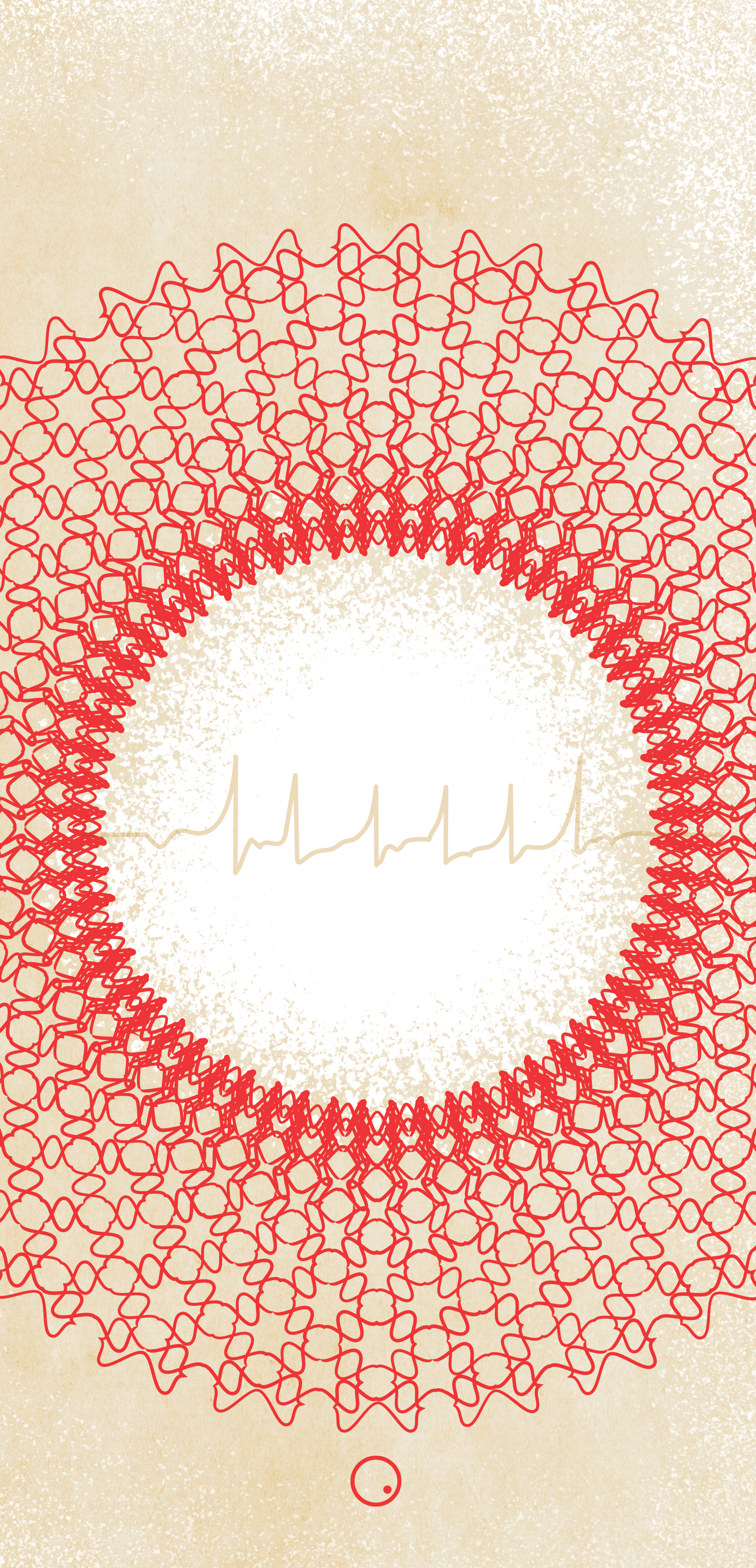

_display_hires.jpg)
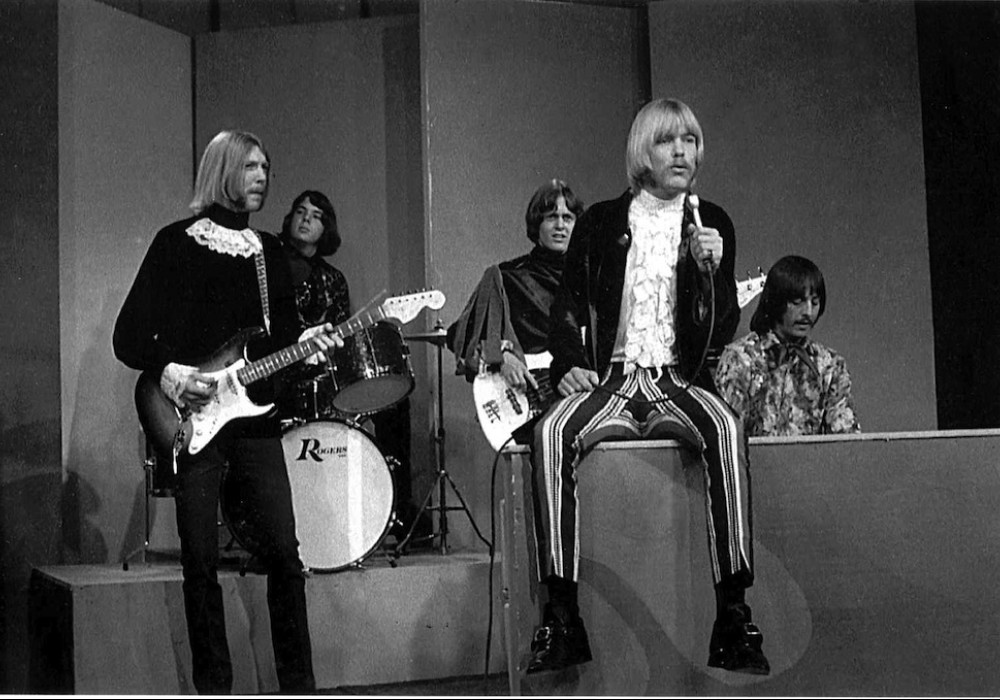
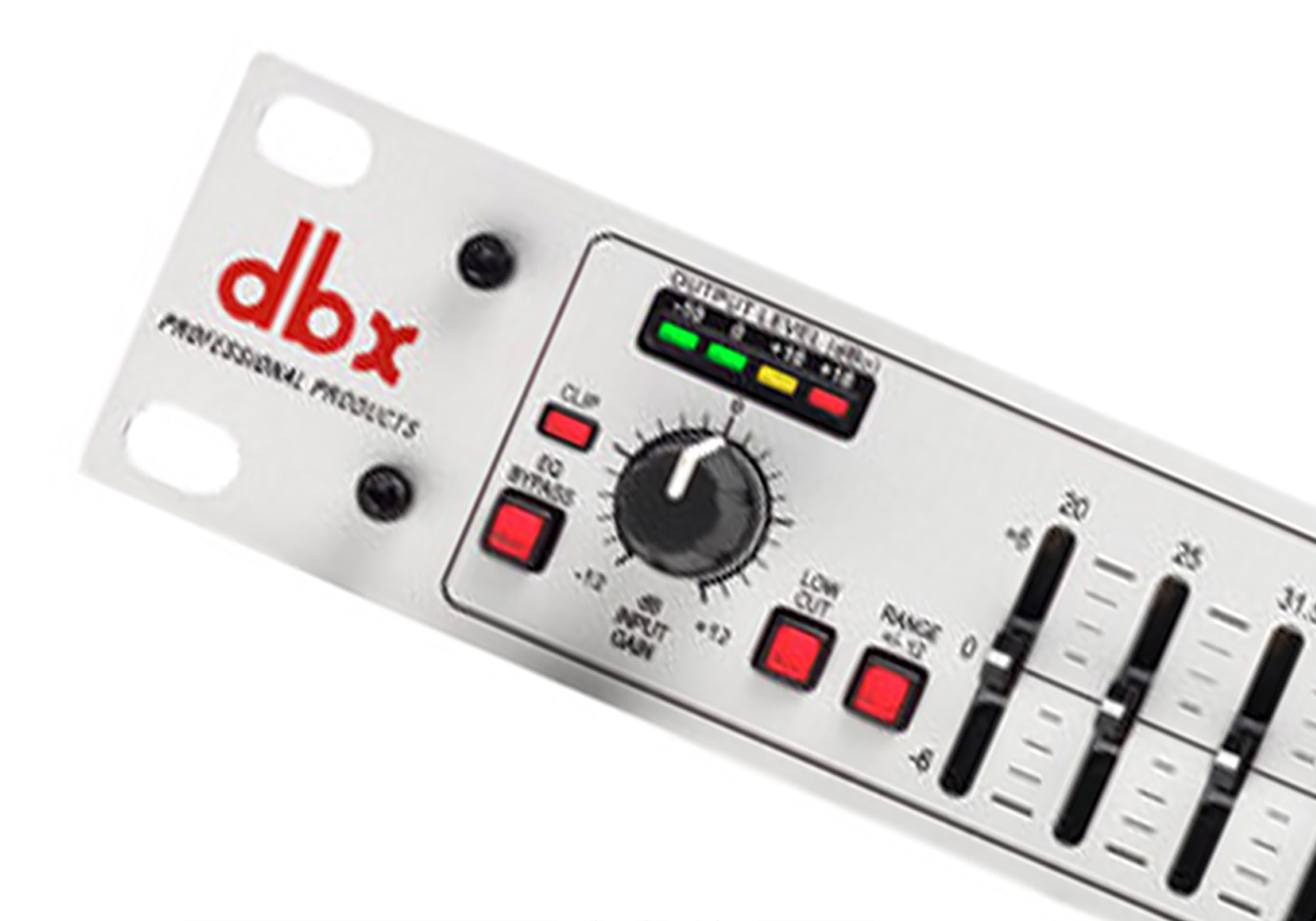
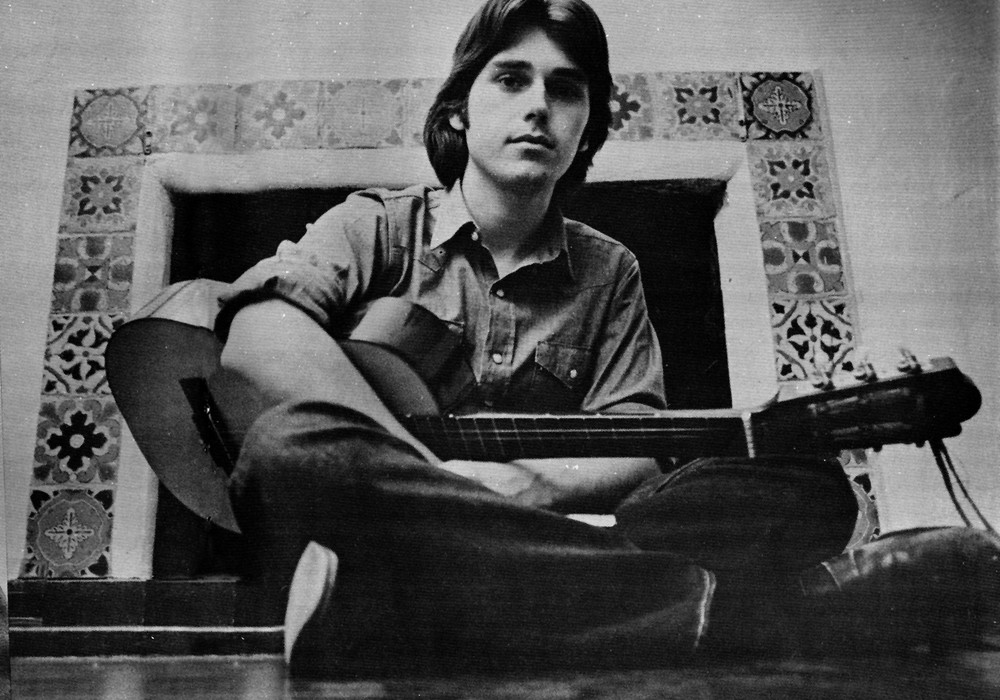
_display_horizontal.jpg)
